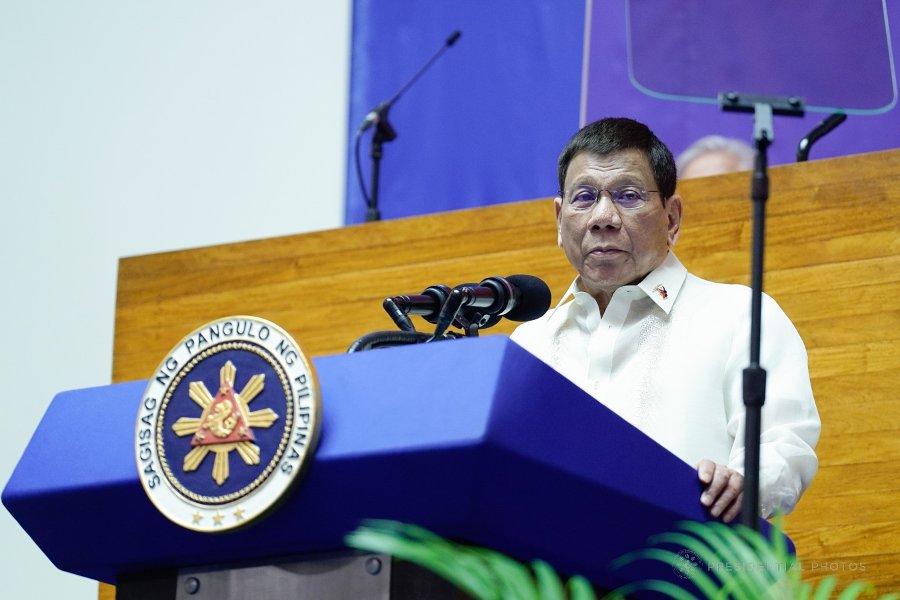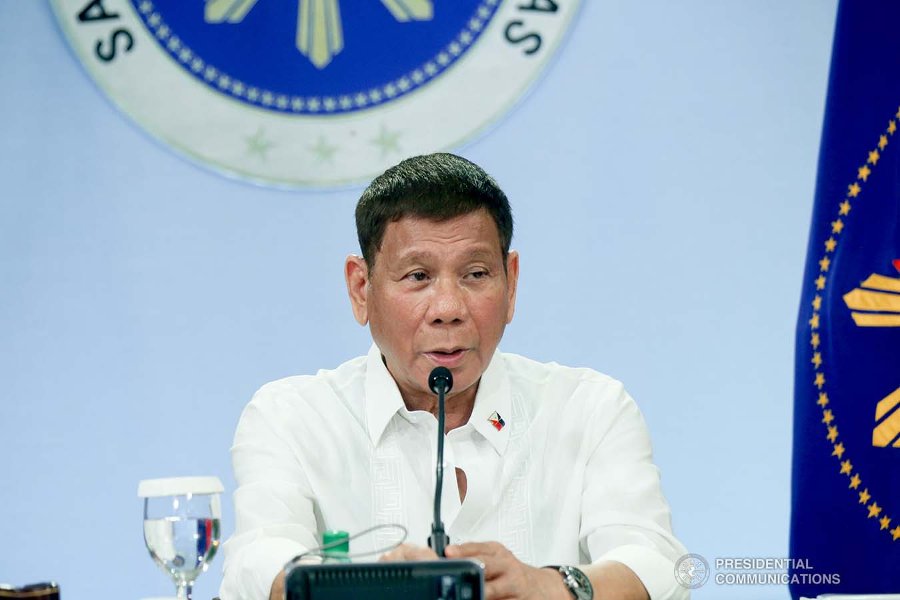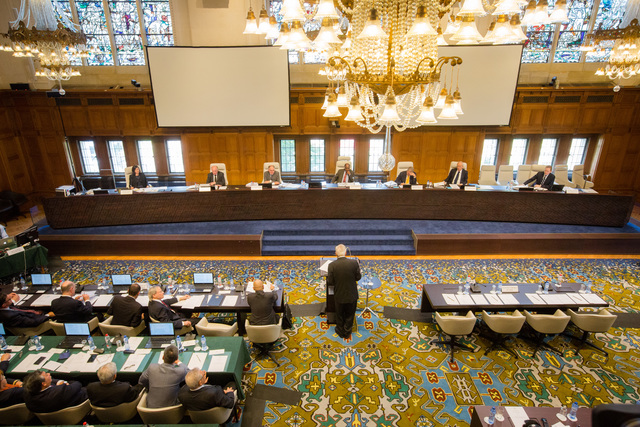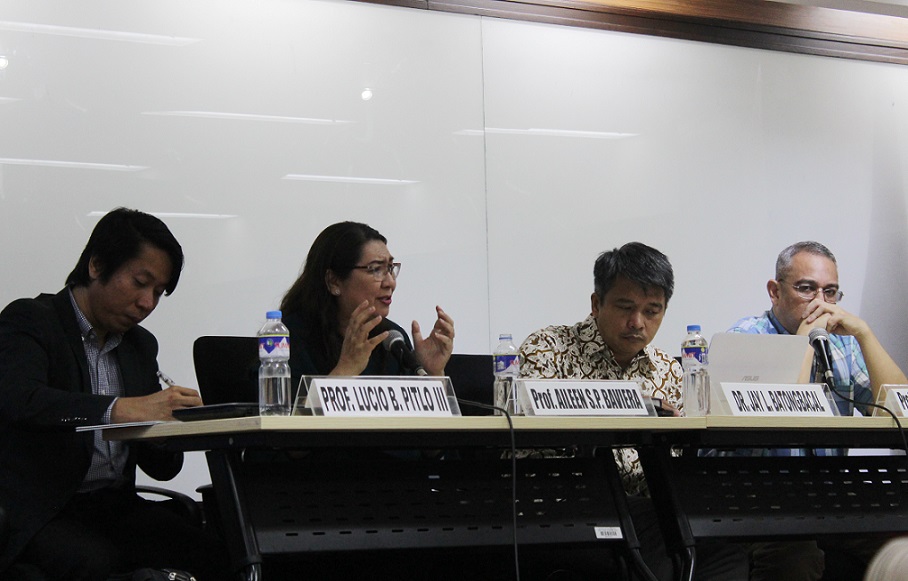In his sixth and final State of the Nation Address (SONA) on July 26, President Rodrigo Duterte falsely claimed the 2016 arbitral award, which nullified China’s expansive nine-dash line claim over the South China Sea, does not bind Beijing.
STATEMENT
The president echoed his remarks in his September 2020 appearance at the United Nations General Assembly in which he declared that the ruling was “beyond compromise,” only to downplay its significance later as he deviated from his prepared speech.
Addressing critics of his handling of the West Philippine Sea dispute, Duterte said:
“Ano pa ang gusto ninyo (What more do you want)? What will I do with a document that [does] not bind China because they were never a part of that arbitration? There was really no arbitration at all because it was (sic) only the Philippine side was heard.”
Source: Presidential Communications Operations Office, State of the Nation Address of Rodrigo Roa Duterte, President of the Philippines to the Congress of the Philippines (Archived Transcript), July 26, 2021, watch from 2:07:30 to 2:08:02
FACT
Contrary to Duterte’s claim, the South China Sea arbitral award is still binding on China even if it opted to not participate in the proceedings, as affirmed by the arbitral tribunal in its Award on Jurisdiction and Admissibility.
Article 9, Annex VII of the United Nations Convention on the Law of the Sea (UNCLOS) explicitly states that “[a]bsence or failure of a party to defend its case shall not constitute a bar to the proceedings.”
China, having ratified UNCLOS in June 1996, was “still a party to the arbitration” and is “bound by any award” issued by the authorized tribunal:
“[T]he non-participation of China does not bar this Tribunal from proceeding with the arbitration. China is still a party to the arbitration, and pursuant to the terms of Article 296(1) of the Convention and Article 11 of Annex VII, it shall be bound by any award the Tribunal issues.”
Source: Permanent Court of Arbitration, Award on Jurisdiction and Admissibility (p. 11), Oct. 29, 2015
The Convention states that any decision handed down by a proper court or tribunal is “final and shall be complied with by all parties to the disputes.”
In its decision on the merits of the case, the tribunal said China’s non-participation “impose[d] a special responsibility” on itself to not “simply accept the Philippines’ claims or enter a default judgment.” (See VERA FILES FACT CHECK: PH didn’t ‘handpick’ entire panel in South China Sea arbitration case)
Throughout the proceedings, the tribunal said it had “taken steps to test the accuracy of the Philippines claims … by appointing independent experts” to weigh in on technical matters, and “by obtaining historical evidence concerning features in the South China Sea and providing it to the parties for comment,” among others.
The arbitral award also noted the measures taken by the tribunal to “safeguard the procedural rights of China.” This included ensuring all communications and materials were “promptly delivered” to the Chinese ambassador in the Netherlands — where the Permanent Court of Arbitration is based — which served as the registry of the case, and providing China “adequate and equal time” to respond to the Philippines’ pleadings.
VERA Files Fact Check earlier flagged Duterte’s false claim during its live fact check coverage of the president’s SONA on July 26. (See #SONA2021 VERA Files’ live fact check)
Sources
Presidential Communications Operations Office, State of the Nation Address of Rodrigo Roa Duterte, President of the Philippines to the Congress of the Philippines (Archived Transcript, Video), July 26, 2021
Permanent Court of Arbitration, Award on Jurisdiction and Admissibility, Oct. 29, 2015
United Nations, United Nations Convention on the Law of the Sea, Accessed July 29, 2021
United Nations, Status of the UNCLOS, Accessed on July 29, 2021
Permanent Court of Arbitration, Award on the South China Sea Arbitration, July 12, 2016
Permanent Court of Arbitration, PRESS RELEASE: The South China Sea Arbitration, July 12, 2016
(Guided by the code of principles of the International Fact-Checking Network at Poynter, VERA Files tracks the false claims, flip-flops, misleading statements of public officials and figures, and debunks them with factual evidence. Find out more about this initiative and our methodology.)




